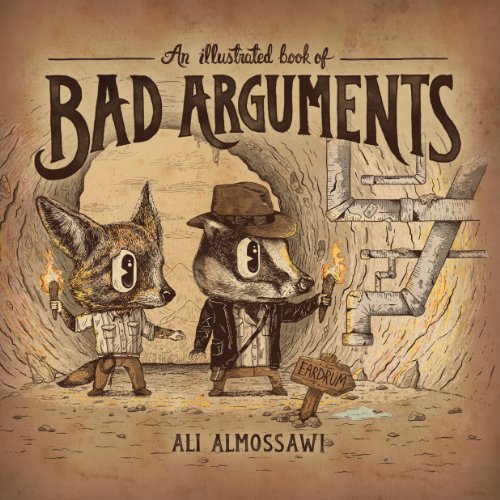
An Illustrated Book of Bad Arguments
by Ali Almossawi, Alejandro Giraldo
Publisher: bookofbadarguments.com 2013
ISBN/ASIN: 098993120X
ISBN-13: 9780989931205
Number of pages: 64
Description:
This book is aimed at newcomers to the field of logical reasoning, particularly those who, to borrow a phrase from Pascal, are so made that they understand best through visuals. I have selected a small set of common errors in reasoning and visualized them using memorable illustrations that are supplemented with lots of examples. The hope is that the reader will learn from these pages some of the most common pitfalls in arguments and be able to identify and avoid them in practice.
Download or read it online for free here:
Read online
(online reading)
Similar books
 The Principles Of Mathematics
The Principles Of Mathematicsby Bertrand Russell - W. W. Norton & Company
Russell's classic sets forth his landmark thesis that mathematics and logic are identical -- that what is called mathematics is simply later deductions from logical premises. His ideas have had a profound influence on the foundations of mathematics.
(14370 views)
 Studies and Exercises in Formal Logic
Studies and Exercises in Formal Logicby John Neville Keynes - The Macmillan Company
In addition to a detailed exposition of certain portions of Formal Logic, the following pages contain a number of problems worked out in detail and unsolved problems, by means of which the student may test his command over logical processes.
(5055 views)
 Formal Logic
Formal Logic- Wikibooks
An undergraduate college level textbook covering first order predicate logic with identity but omitting metalogical proofs. The first rules of formal logic were written over 2300 years ago by Aristotle and are still vital.
(14863 views)
 The Art of Logical Thinking
The Art of Logical Thinkingby William Walker Atkinson - The Progress company
By the employment of the reasoning faculties of the mind we compare objects presented to the mind as percepts or concepts, taking up the raw materials of thought and weaving them into complex mental fabrics which we call abstract ideas of truth.
(13188 views)